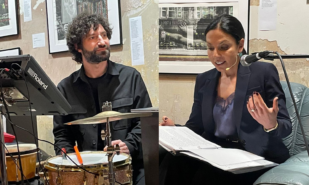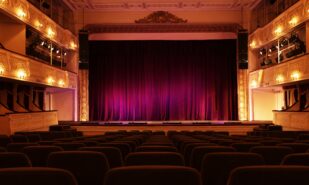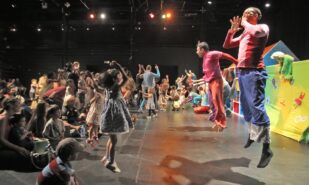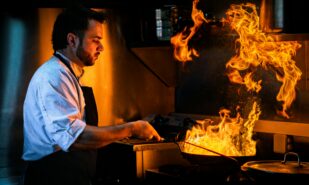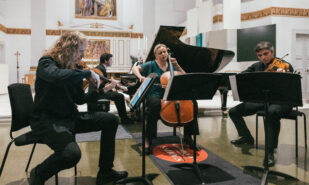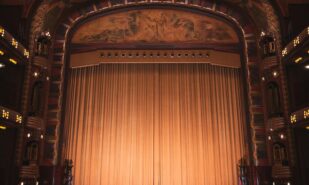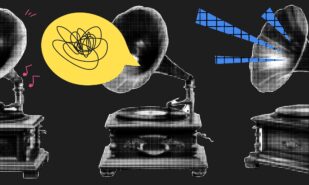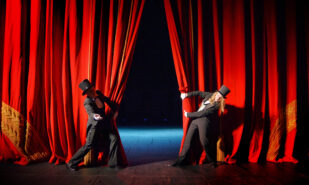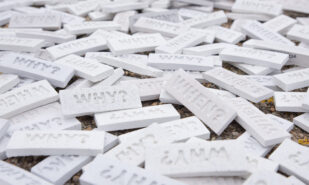Sausages with Georg Baselitz
In one of my past conversations with theatre director Jan Ritsema, he posited that the epoch of grand artists had passed. Such a notion was challenging to accept, especially as names like Koons, Gursky, and Baselitz failed to impress him. My skepticism still strong as the White Cube gallery presents an impressive collection of Georg Baselitz’s new creations, following the retrospectives of Marina Abramovich at the British Museum and Yoko Ono at Tate Modern. Perhaps Jan’s assertion would be more aptly framed as a phase of ongoing transition rather than an absolute conclusion.
The opening evening at White Cube paid tribute to Baselitz’s gastronomic preferences—sausages paired with sauerkraut and beer. Upon my arrival in Bermondsey, I found a crowd of people, their focus not on the gallery’s entrance, but rather on the beer taps and the tent where the grill was set up. I chose to delve into the art first.

The exhibition, titled A Confession of My Sins, showcases the recent works of the 86-year-old Baselitz, who has revisited the imprints and visions of his youth alongside motifs central to his artistic career. ‘After all, an artist always deals with his past,’ a sage of the art world once proclaimed—perhaps Baselitz himself. The gallery’s first space blooms with an array of large-scale canvases, each bearing his signature upside-down figures, now set against a backdrop of buoyant sky. A closer examination reveals the “models” in exhibitionistic poses, their limbs overlaid with nylon stockings. Sensuality is undoubtedly one of the recurring leitmotifs in the German artist’s body of work.

Since the start of the “remix” series in the late 2000s—reinterpretations of his earlier works—Baselitz has seldom ventured into new imagery, instead preferring to probe the depths of the creative act itself. His paintings have always been diverse in style and execution, but the ones displayed at White Cube, with their erratic figural outlines, a medley of artifacts and aggressive paint applications, seem to stand as a testament to Baselitz’s belief in the primacy of visual perception—elevating it above subject, detail, and form. While Baselitz’s deviant narratives are often interpreted as provocative, it is far more pleasant to perceive them as a playful engagement with the viewer, introducing an obstacle to the process of severing the subjective in art contemplation.

Within one of White Cube’s spaces, canvases are graced with depictions of birds, deer, horses, transferred from the artist’s childhood sketches. The neo-expressionist approach, with its roots in informal, “brut” art, proves to be an apt conduit for these embryonic concepts. The large-scale paintings rhyme with the displayed drawings, where red and black coalesce into distorted, discordant shapes. The near absence of narrative directs the observer’s attention to the paper’s texture and the potency of each hue, that is, the intrinsic qualities of drawing.

And what of the beer? The queue for it meandered beyond the courtyard, snaking into the street. To pass the time, a neighbor engaged a passerby, ‘Have you been inside? Is it nice?’ As I held my place, the wait culminated not in the expected drink but in the unexpected arrival of Baselitz himself, who was promptly served a glass out of turn. He barely took a sip amidst the courtyard’s crescendoing applause (it’s a challenging task to clap with a plate in hand).
The sausages and sauerkraut were nice.
10 April – 16 June 2024
Location:
144 – 152 Bermondsey Street
London SE1 3TQ


